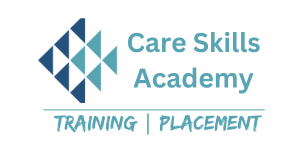The automobile industry has grown exponentially over the years, with innovations constantly enhancing vehicle technology. With this evolution comes the need for skilled mechanics who understand not only the basics of vehicle repair but also the complexities of advanced automotive systems. For those passionate about vehicles and interested in a hands-on, rewarding career, enrolling in an automobile repairing course is a perfect entry point. Here’s a closer look at what you can expect from a quality automobile repairing course, and how it can set you up for a fulfilling career.
Understanding the Importance of Automobile Repairing Skills
Automobile repairing is a diverse field requiring expertise in various areas, from basic mechanical knowledge to advanced diagnostic skills. With cars evolving to include complex electronics, computer systems, and hybrid technology, the industry demands mechanics who can adapt to these advancements. A well-structured automobile repairing course covers these fundamentals, preparing students to address a range of car issues, from simple repairs to advanced troubleshooting.
Key Components of an Automobile Repairing Course
A comprehensive automobile repairing course typically includes both theoretical and practical learning modules. Here’s a breakdown of the essential areas covered:
- Engine Repair and Maintenance: This is one of the core parts of automobile repair, where students learn to diagnose and repair engine issues. The module covers areas like combustion systems, fuel injection, cooling systems, and engine diagnostics.
- Transmission Systems: Repairing and maintaining the transmission system is another fundamental skill taught in these courses. Students learn about different types of transmission, such as manual and automatic, as well as the intricacies of clutch systems, gearboxes, and fluid maintenance.
- Electrical and Electronics: With the advancement in automobile technology, understanding car electronics has become essential. This module includes learning about wiring systems, car batteries, lighting, sensors, and computer systems that control various functions in modern vehicles.
- Braking Systems and Safety Features: Brake repair and maintenance is critical for vehicle safety. Students learn about various braking systems, including hydraulic brakes, anti-lock braking systems (ABS), and the importance of maintaining each component to ensure driver and passenger safety.
- Suspension and Steering: This area includes alignment, wheel balancing, and suspension repairs. A car’s handling and ride comfort depend heavily on these systems, making this an essential skill for any mechanic.
- Diagnostics and Troubleshooting: Modern vehicles are equipped with diagnostic tools that display error codes, which mechanics must interpret to identify issues. This module teaches the use of specialized diagnostic equipment, interpretation of codes, and step-by-step troubleshooting.
Why Choose an Automobile Repairing Course?
An automobile repairing course not only teaches the skills needed to repair vehicles but also instills a deep understanding of the importance of safety, customer satisfaction, and continuous learning. Mechanics play a crucial role in ensuring that vehicles run efficiently, safely, and with minimal environmental impact. By investing in this training, you’ll be well-prepared for a job that’s both in-demand and respected.
Career Opportunities in Automobile Repair
Completing an automobile repairing course opens up various career paths. Some of the most common options include working as an automotive technician, service advisor, or even starting your own repair shop. The automotive repair industry offers numerous opportunities for growth, and skilled mechanics often find it easy to advance their careers by gaining experience and specializing in high-demand areas, such as electric vehicles or high-performance engines.
Final Thoughts: A Course for Lifelong Skills
An automobile repairing course is an excellent choice for anyone looking to enter the automotive industry. It offers a balanced curriculum that covers the basics and goes beyond with advanced modules tailored to today’s automotive needs. Through hands-on learning and real-world applications, students not only gain skills but also the confidence needed to succeed in this field. Whether you aspire to work at an automotive service center or run your own shop, an automobile repairing course can be the first step toward a fulfilling and stable career.
By enrolling in a reputable course, you’ll be equipped with the skills and knowledge needed to excel, setting yourself on a path to become a valuable asset in the automobile repair industry.

